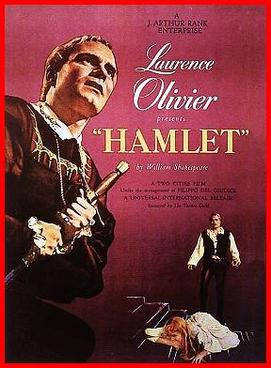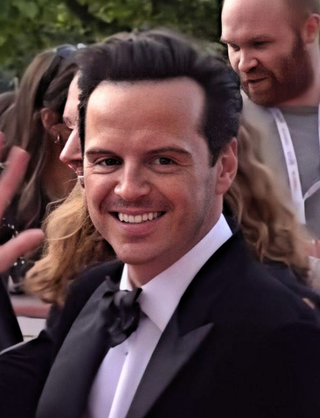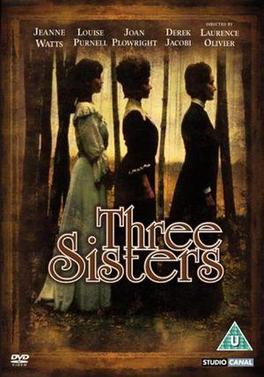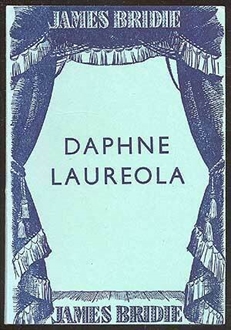
Hamlet is a 1948 British film adaptation of William Shakespeare's play of the same name, adapted and directed by and starring Laurence Olivier. Hamlet was Olivier's second film as director and the second of the three Shakespeare films that he directed. Hamlet was the first British film to win the Academy Award for Best Picture. It is the first sound film of the play in English.

Frederick George Peter Ingle Finch was an English-Australian actor of theatre, film and radio.

William "Willy" Russell is an English dramatist, lyricist and composer. His best known works are Educating Rita, Shirley Valentine, Blood Brothers and Our Day Out.

The Ebony Tower (1974) by John Fowles is a collection of five novellas and short stories with interlacing themes, each built around a medieval myth: The Ebony Tower,Eliduc, Poor Koko, The Enigma and The Cloud.

Richard III is a 1955 British Technicolor film adaptation of William Shakespeare's historical play of the same name, also incorporating elements from his Henry VI, Part 3. It was directed and produced by Laurence Olivier, who also played the lead role. Featuring many noted Shakespearean actors, including a quartet of knights, the film depicts Richard plotting and conspiring to grasp the throne from his brother King Edward IV, played by Sir Cedric Hardwicke. In the process, many are killed and betrayed, with Richard's evil leading to his own downfall. The prologue of the film states that history without its legends would be "a dry matter indeed", implicitly admitting to the artistic licence that Shakespeare applied to the events of the time.

Andrew Scott is an Irish actor. Known for his roles on stage and screen, he has received numerous accolades, including a BAFTA Television Award and two Laurence Olivier Awards, along with nominations for a Primetime Emmy Award and two Golden Globe Award.
Jean Anouilh's play Antigone is a tragedy inspired by Greek mythology and the play of the same name by Sophocles. In English, it is often distinguished from its antecedent through its pronunciation.

Delia Phyllis Daphne Heard was an English actress and acting teacher. She was born in Plymouth, Devon. She appeared in numerous made-for-TV movies and TV series. She was perhaps best known in latter years as Richard's elderly mother Mrs. Polouvicka in To the Manor Born.

Trevor John Eve is an English actor. In 1979 he gained fame as the eponymous lead in the detective series Shoestring and is also known for his role as Detective Superintendent Peter Boyd in BBC television drama Waking the Dead. He is the father of three children, including actress Alice Eve. He is the winner of two Laurence Olivier Awards from the nineties in theatre.

Whose Life Is It Anyway? is a play by Brian Clark adapted from his 1972 television play of the same title, which starred Ian McShane. The stage version premiered in 1978 at the Mermaid Theatre in London, and subsequently opened on Broadway in 1979. The play involves a sculptor who is paralysed.

Three Sisters is a 1970 British drama film starring Alan Bates, Laurence Olivier and Joan Plowright, based on the 1901 play by Anton Chekhov. Olivier also directed, with co-director John Sichel; it was the final feature film directed by Olivier. The film was based on a 1967 theatre production that Olivier had directed at the Royal National Theatre. Both the theatrical production and the film used the translation from the original Russian by Moura Budberg. The film was released in the U.S. in 1974 as part of the American Film Theatre. This was a series of thirteen film adaptations of stage plays shown to subscribers at about 500 movie theaters across the country.
Michael Bartlett is an English playwright and screenwriter for film and TV series. His 2015 psychological thriller TV series, Doctor Foster, starring Suranne Jones, won the New Drama award from National Television Awards. Bartlett also won Best Writer from the Broadcast Press Guild Awards. A BBC TV Film of Bartlett's play King Charles III was broadcast in May 2017 and while critically acclaimed, generated some controversy.
King Lear (1983) is a video production of William Shakespeare's 1606 play of the same name, directed by Michael Elliott. It was broadcast in 1983 in the UK and in 1984 in the US.
Clive Francis is a British stage, television and film actor.

Come Back, Little Sheba is a 1977 videotaped television film production of the play of the same name by William Inge produced by Granada Television as part of the anthology series Laurence Olivier Presents transmitted in the UK by ITV on 1 January 1978. The selected plays were intended to represent "the best" in 20th Century theatre, staged for television. It aired in the United States on NBC on 31 December 1977.

Time is a musical with a book and lyrics by Dave Clark and David Soames, music by Jeff Daniels, and additional songs by Hans Poulsen and David Pomeranz.
Hindle Wakes is a stage play by Stanley Houghton written in 1910. It was first performed in 1912.

Stacksteads is a village between the towns of Bacup and Waterfoot within the Rossendale borough of Lancashire, England. The population of this Rossendale ward at the 2011 census was 3,789. Stacksteads includes a mountain bike trail called Lee Quarry which had originally been a working quarry.

Hindle Wakes is a 1927 British silent film drama, directed by Maurice Elvey and starring Estelle Brody and John Stuart. The film is adapted from Stanley Houghton's 1912 stage play of the same name, and reunites Brody and Stuart following their hugely popular pairing in the previous year's Mademoiselle from Armentieres. The film was also released under the title Fanny Hawthorne.

Daphne Laureola is a comic play by James Bridie about a young Polish refugee's infatuation with a middle-aged English woman. 'Egalitarianism is at the heart of this vision, but idealism may be just a liability.'














